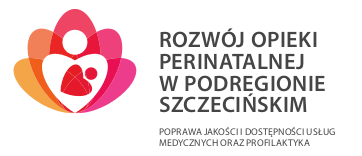PRENATAL EXAMINATION
The most important desire of future parents is to have a healthy newborn. Unfortunately, during the evaluation of the foetus during pregnancy, the doctor can find some irregularity in the foetus and inform the parents that the child is likely to be born with a congenital defect.
Not every congenital defect is a sentence condemning to the child. Defects that occur in foetus consist of numerous genetic diseases and anatomical defects which appear during foetal development. Genetic disorders include, inter alia, so-called chromosomal aberrations, the most frequent of which is the Down’s syndrome, a disease with a varied course – sometimes light, which is characterized only by varying degrees of mental retardation of the child, but it is often also associated with serious anatomical defects e.g. of the heart or alimentary tract. The risk of having a baby with this genetic syndrome increases with the age of its mother. There are also many congenital defects, where the risk of a child suffering from it does not depend on the pregnant woman’s age. They include defects in the central nervous system, heart, urinary tract, alimentary tract or bones. The failure to detect several of foetal abnormalities at an early stage, followed by proper procedures still in pregnancy or immediately after birth giving, could make normal life after birth impossible. Unfortunately, many defects are irreversible, but the appropriate procedures in pregnancy may reduce the degree of disability. Prenatal examinations serve to assess the condition and development of the foetus. Their range includes non-invasive tests such as 2D ultrasound, ultrasound with the assessment of blood flow in the vessels of the foetus, pregnant woman’s blood test for specific proteins, and also an attempt of searching for foetal cells in the blood of the pregnant woman with their evaluation. If a non-invasive examination shows an increased risk of disease, it may prove necessary to have a thorough evaluation of the foetus by examining the cells of its organism. The doctor then shall propose invasive tests i.e. chorionic villus sampling, CVS, amniocentesis or cordocentesis. Noninvasive examinations are completely safe for the foetus, but they show only a probability of irregularities. Invasive tests, in turn, exclude or confirm a genetic disease but they involve a risk of complications, of which pregnancy termination is most dangerous. That is why the doctor will propose this type of examination only when the risk of irregularities is significant and carrying out this examination will always depend on the pregnant woman’s decision.
The proper timing of the foetus assessment is very important as some symptoms, suggestive of a disease, can be noticed only in a given stage of pregnancy. Therefore, the first ultrasound assessment of foetus should be performed between 11th and 14th weeks of gestation and it may be combined with the evaluation of specific substances in pregnant woman’s blood circulation. The information obtained from these examinations will allow, among other things, to quantify the risk of chromosomal aberrations. Another assessment should take place between week 18 and week 22 and week 28 and 32 of gestation. At that time, an accurate assessment of foetal anatomy may be carried out, as well as, the conditions in which the foetus grows. If there is a need to perform a variety of invasive tests, the selection of the stage of pregnancy to do them depends on the information we expect. CVS tests for high-risk genetic diseases may be carried out at 12 weeks of pregnancy, and cordocentesis in serological conflict even in the third trimester of pregnancy, or else after week 28. The information obtained from prenatal examinations is very important. The early detection of irregularities gives a chance to have an accurate diagnosis, to determine the chance of treatment and its course and to plan time, place and method of delivery – spontaneous delivery or caesarean – safe for the foetus. The diagnosis of a severe and irreversible damage at an early stage, in case of the continuation of pregnancy, allows parents and family to prepare for the difficult role of taking care of a sick child. In addition to the detection of severe congenital diseases or irreversible anatomical defects, prenatal examinations can detect abnormalities, which may be corrected effectively even in the foetal period. The efforts of doctors along with the steady progress of medical technology cause it that the number of such defects, which may be treated intrauterine constantly grows.




